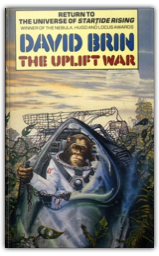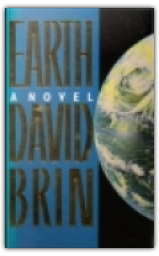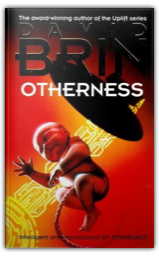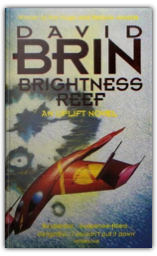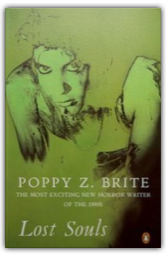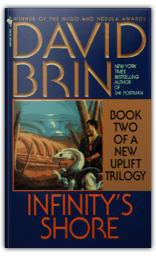 Infinity's Shore
David Brin
Infinity's Shore
David Brin
This second volume in David Brin's new Uplift trilogy is an epic tale that artfully combines dozens of unique characters and their individual stories. The planet Jijo, which has been settled by six separate races despite a decree that it remain barren for a million years, is about to change. The exploration ship Streaker, on the run since discovering the secrets of a two-billion-year-old derelict fleet, has arrived with virtually the entire universe in pursuit. Overnight the peaceful, technologically backwards Jijoan society erupts into civil war, creating a chaotic tapestry of grief, sorrow, joy, love and, ultimately, hope. 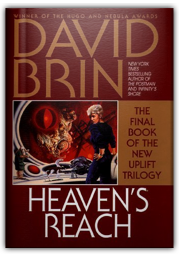 Heaven's Reach
David Brin
Heaven's Reach
David Brin
Heaven's Reach is the final volume of the Uplift trilogy, which begins in Brightness Reef and continues in Infinity's Shore. It chronicles the adventures of a handful of primitives from the planet Jijo who have left or been taken from their homes only to be swept into the intrigues of galactic politics. The novel also continues the story of the fugitive Earth starship Streaker, pursued across the galaxy for its precious cargo of ancient artifacts. Just when it looks like things can't get worse for Streaker, the foretold Time of Changes rocks the galaxy. Devastating "space quakes" shake every planet and star, and some of the particularly unscrupulous alien races attempt to use the disaster to further their bizarre goals. There's danger and excitement on almost every page (in contrast to much of the first two books in the series) and Brin finally delivers on many of the mysteries of the Five Galaxies. The Progenitors, the Hydrogen Breathers, Streaker's cargo—these and more are explained at last. Or are they? Each seemingly ultimate truth tends to dissolve a chapter later, revealing a new and more complex truth. New adventures and mysteries await. —Brooks Peck 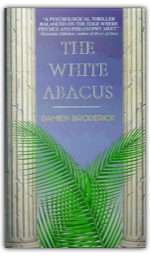 The White Abacus
Damien Broderick
The White Abacus
Damien Broderick
Winner of more than one Ditmar Award (Australia's highest honor for science fiction), Damien Broderick has been doing SF, criticism, and academic research for many years. The White Abacus doubtless introduces him to more people outside of the Commonwealth. |
 Made with Delicious Library
Made with Delicious Library
London, State zipflap congrotus delicious library Scott, Mike
